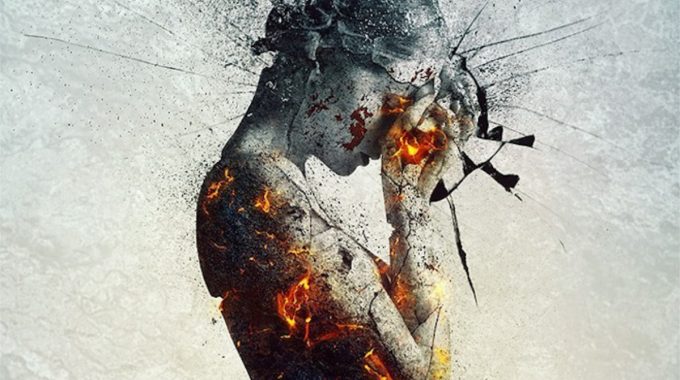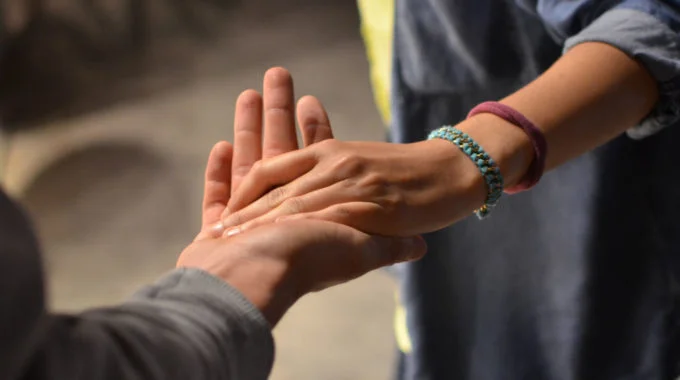Feelings, felt senses, and intuition are the Window to The Soul. We connect with our…

How Radical Acceptance of Unconscious Emotions is the Missing Link to Healing Mental Health and Chronic Pain.
I recently saw Oprah’s 2020 Vision Tour: Lady Gaga Interview. The topic of the conversation was about mental health, chronic pain and self-care. I love Lady Gaga’s honest exposure of her struggle with psychosis, anxiety and chronic physical pain. She also spoke about her experience with sexual assault and PTSD, helping others who cope with the same issues realize that they aren’t alone.
What particularly touched me was Gaga’s prayerful acceptance of her physical and psychological suffering. She talked about how radical self-acceptance has helped her navigate the intensity of her emotional triggers and physical struggle, and take care of herself. She sees that God has given her this pain to understand what pain is so that she can help others.
Gaga also explained that with self-acceptance she can put her shame in a box and make it very small. In this way she knows that she’s not alone; she’s part of the world and she prays to God for courage and wisdom.
The path to wisdom
“Wisdom came from accepting the pain.” Gaga shared with Oprah. Oprah then asked Gaga what lesson has taken her the longest to learn. Gaga answered, “How to be wise” … “You see, there is a rational mind and the emotional mind. Wise is when you are both rational and emotional at the same time, and the two meet. I have learned how to pull myself back from either place and sit in the centre.”
I know from experience what it feels like to vacillate between the tyranny of the rational mind and harshness of over-reactive emotions. I know how oppressive and confusing the logical mind can be and how helpless the emotional body can feel. I also know how tremendously freeing it is to find the centre point between the two. It’s peaceful and calm. That is where emotional maturity takes root and in how we transform ill-health and relationship issues into accurate reflections of who we truly are.
The blessings of vulnerable strength
Gaga’s candid sharing moves me because I see myself in her vulnerable strength.
I, too, have suffered intense emotional triggers from past sexual abuse, as well as the pain related to my mother’s murder in 1976 and the ensuing betrayal of my grandparents, who tried to convince me that my father was the cause. I’ve seen how blame embitters the heart and how pain is so misunderstood and unwelcomed in our society.
Pain is shamed, ignored, denied, neglected and over medicated, and still it resurfaces over and over again to be accepted and healed. No matter what we as a society do with pain, no matter how much we try to hide it in a corner, pain persists because it needs love. Our fear needs love. Sorrow needs love. Even the past needs love because it exists here and now in our bodies and our relationships. Transformational healing requires radical acceptance, empathy, compassion and mutual support.

The role that medicine plays in navigating mental health Issues.
I cannot bring up mental health without addressing medication. In the interview with Oprah, Gaga talked about the importance of medication and how it’s a controversial topic, noting that there’s an intense stigma surrounding treating mental illness with medication. She said that medication has helped her tremendously and that she takes anti-psychotic and anti-anxiety medicine.
I have friends and clients, who when unable to cope with life, keep a job, or maintain their relationships, benefit from medication. They receive needed respite so that they can better navigate their emotional triggers, exhaustion and desperation.
As well, a family member who, after attempting suicide numerous times, was diagnosed with BPD. Medication has stabilized her emotionally and helped her avert the destruction of her marriage and family. A generation past, my mother, didn’t receive the proper care she needed. In a fit of depression and drunkenness, she tried to throw herself in front of oncoming cars. Her eldest daughter, then 10, stopped her. I wonder what life my mother would have led and who she would have been without the destructive tendencies of her mental illness.
Mental health affects us all. We are a community, shared humanity afflicted by conditioned-responses and survival-mechanisms. We’ve inherited the earth and our ancestral programming, and we’re here to heal and be whole.
I’ve been fortunate to receive incredible support in my life from friends and my partner, and from therapeutic and spiritual mentoring, as well as with traditional chinese medicine and homeopathy. I’ve been brave in addressing underlying false-beliefs and trauma, and I’ve made peace with so many facets of my family life. In essence, I awoke to the realization that I am loved and that I belong.
It is with natural medicine in mind that I want to advocate for people who react adversely to medication. They feel numb and disconnected from their spiritual selves. I think that in many cases, medication is overused and that psychology doesn’t play a significant enough role in today’s mental health crisis. So, I was happy that in the interview with Gaga, she said that medicine alone is not the answer; therapy is needed and CBT has been a big part of her recovery.
The basic premise of CBT is that our thoughts—not external events—affect the way we feel. In other words, it’s not the situation you’re in that determines how you feel, but your perception of the situation.
– Melinda Smith, Robert Segal, and Jeanne Segal

Modern medicine does not take into account a person’s spiritual life and in how personal crisis can be the emergence of one’s spiritual awakening.
Spiritual emergence is the work of highly attuned healers, spiritual mentors and counselors. However, the spiritual world is riddled with misconceptions, spiritual do-gooders, and ego-driven leaders. Who and what does one trust?
As a spiritual devote, I’ve come across many spiritual advocates who denounce medication for both mental health and chronic pain, and some go so far as referring to mental health and suffering as an illusion. They say that it isn’t real. But it is real. If you suffer from mental health issues and chronic pain, then your experience is very real. It’s not your imagination. But it isn’t something that is happening to you; mental health and chronic pain are directly related to your survival mechanism, your conditioned beliefs.
In The Mind-Body Prescription, Dr. John Sarno suggests that unconscious emotions lie at the root of chronic pain and fatigue. I understand that fatigue plays a big role in depression and anxiety.
Sarno explains that ongoing pain is a response mediated by the Autonomic Nervous System, as part of a whole mind-body attempt to manage the emotions and beliefs below the surface of one’s consciousness.
“Pain and fatigue are an autonomically mediated distraction mechanism, a way that the brain defends itself from painful emotions which are too threatening to allow into consciousness,”
— Hal Greenham
Whether it is a physical pain, mental fatigue or trauma-induced disorder, the body is producing survival-based signals to protect the underlying emotions. The key is to establish a sense of safety with radical self-acceptance and acceptance of the pain and struggle — to not view it as right or wrong, good or bad, but as the state of one’s health that needs tending to with compassionate care.
“When you accept yourself completely,
you give others permission to love you just the way you are.”
— Masiandia,

❦
If you struggle with depression, you feel lost and disconnected
from your spirit, and you experience chronic anxiety or pain,
please consider receiving my support.
BodySOUL integration treats the whole body, mind
and spirit as resourceful, innocent and whole.
❦
Feature image by JR Korpa




This Post Has 0 Comments